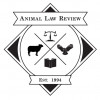INTRODUCTION
THE CONFLICT BETWEEN SPECIES IN AN EVER MORE CROWDED WORLD
by Dr. Jane Goodall
ARTICLES
ANOTHER WEAPON FOR COMBATING FAMILY VIOLENCE: PREVENTION OF ANIMAL ABUSE
by Charlotte Lacroix
Dr. Lacroix discusses the correlation between different forms of family violence and suggests that family pets are just another victim. Dr. Lacroix proposes that stronger animal anticruelty laws may be part of the solution to reducing family violence because they enhance the likelihood of detection of an offender’s abusive behavior.
RECOVERY OF COMMON LAW DAMAGES FOR EMOTIONAL DISTRESS AND LOSS OF SOCIETY FOR THE WRONGFUL DEATH OF A COMPANION ANIMAL
by Steven M. Wise
Mr. Wise analyzes experiential recognition of the bond that exists between human companions and companion animals in the context of possible recovery of tort damages for the wrongful death of a companion animal. He demonstrates that companion animals are often seen by their human companions as members of the family (holding much the same status as children). He discusses historical aspects of the common law as they relate to current tort law in such cases and examines the tension that exists between principle and policy.
OREGON DOG CONTROL LAWS AND DUE PROCESS: A CASE STUDY
by Christopher C. Eck & Robert E. Bovett
Mr. Eck and Mr. Bovett examine the inequities and inconsistencies in Oregon dog control laws and due process concerns arising from them. The authors outline constitutional requirements that need to be enforced to ensure protection against unreasonable government actions in cases involving these laws.
DOLPHIN-SAFE TUNA: THE TIDE IS CHANGING
by Kristin L. Stewart
Ms. Stewart reviews the history of the tuna-dolphin controversy in the Eastern Pacific Ocean. She explores international agreements and U.S. law that mandate dolphin-safe tuna fishing practices. Finally, Ms. Stewart reviews the steps taken by the United States, including embargoes against other countries’ tuna, to force tuna-fishing nations to use dolphin-safe practices.
ESSAYS
THE FRUITS OF OUR LABOR: RESULTS FROM THE FIRST SESSION OF THE 105TH CONGRESS: 1997 FEDERAL LEGISLATIVE SUMMARY
by Nancy Perry
Ms. Perry outlines the actions taken on animal issues during the first session of the 105th Congress and discusses the weak consideration and lack of progress made in much of the legislative agenda in is this area. She also provides a current legislative update for each bill involved.
COMMENTS
“SAVE THE WHALES” V. “SAVE THE MAKAH”: THE MAKAH AND THE STRUGGLE FOR NATIVE WHALING
by Richard Kirk Eichstaedt
In 1997 the International Whaling Commission approved a quota for the Makah Indian Tribe to hunt four gray whales per year, culminating years of legal wrangling and political maneuvering by all of the concerned parties. Mr. Eichstaedt examines the history of the Makah whaling rights from the Tribe’s treaty with the United States in 1855 to the present-day battles with Congress and the IWC. This unfolding story pits a species of whale once on the brink of extinction, against Native Americans reasserting a centuries-old custom.
CAN NONHUMAN ANIMALS FIND TORT PROTECTION IN A HUMAN-CENTERED COMMON LAW?
by Enger McCartney-Smith
Section 870 of the Restatement (Second) of Torts provides a method by which a court might extend private intentional tort rights to nonhuman animal plaintiffs. Given our current scientific and experiential understanding of many species, combined with existing court procedures to ease administrability, such an extension of tort law is mandated.
IF ANIMAL RIGHTS ACTIVISTS COULD WRITE FEDERAL RESEARCH POLICY
by Vasanth R. Shenai
Mr. Shenai examines animal rights in the context of federal animal testing. After discussing current federal research policy and the positions held by animal rights advocates, he proposes a new statute to accommodate all interests in society as well as the rights of the animals being considered for testing.
